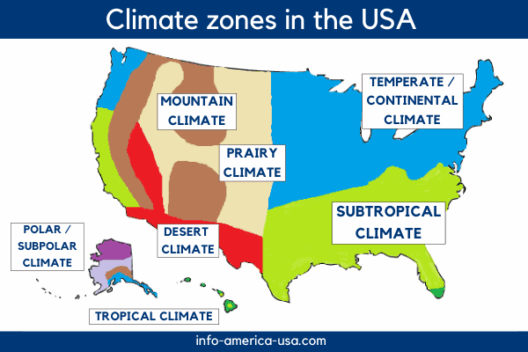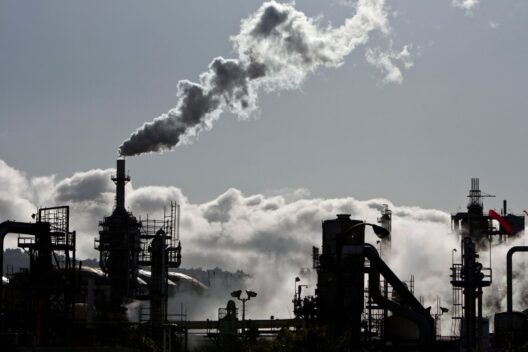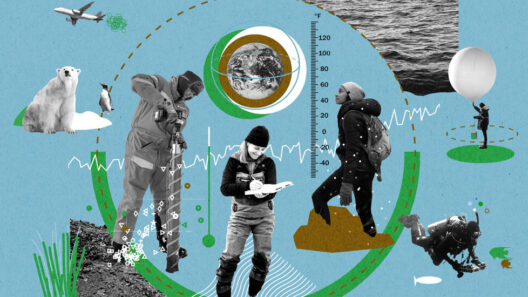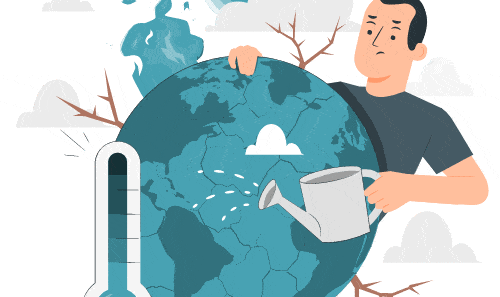In the realm of contemporary politics, few statements electrify debate as much as Donald Trump’s claim declaring global warming a “Chinese hoax.” This assertion, made in various tweets and public appearances, raises pivotal questions about the intersection of climate science and political rhetoric. Was it a mere slip of the tongue, or does it reflect a larger sentiment that undermines the critical discourse surrounding climate change?
To fully grasp the implications of Trump’s statement, we must first dissect what it means to label a scientific concept as a hoax. In the political landscape, to deem something a “hoax” often serves more to delegitimize opposing viewpoints than to engage in constructive discussion. By dismissing global warming—which is overwhelmingly supported by climate scientists as a reality exacerbated by human activities—as mere fabrication, Trump invites his followers to disregard established scientific consensus.
But let’s rewind the clock a bit. In 2012, Trump tweeted: “The concept of global warming was created by and for the Chinese in order to make U.S. manufacturing non-competitive.” This incendiary proclamation was not an isolated incident but rather a recurrent theme in his narrative. It places China, a burgeoning superpower, in a sinister light, suggesting that they are cunningly using environmental issues as tools of economic warfare against the United States.
So, why invoke such a surprisingly contentious phrase? Could it be that labeling global warming as a “Chinese hoax” is an invitation to challenge the mainstream scientific community? One might ponder if such a contention enables a playful sparring with the electorate, provoking discussions and galvanizing support among those who feel disenfranchised by the prevailing climate policies. Here lies a paradox: does political posturing serve the purpose of casting doubt on genuine environmental concerns?
In investigating the broader context, it’s vital to understand the ramifications of such statements on public perception. Around the globe, climate change is an existential threat, prompting dire calls for action based on a robust body of evidence. The National Aeronautics and Space Administration (NASA) and the Intergovernmental Panel on Climate Change (IPCC) have outlined a plethora of data linking human activities—particularly the burning of fossil fuels—to increasing global temperatures, rising sea levels, and extreme weather events. Dismissing climate change as a hoax thus pits political ideology against empirical evidence.
This leads us to a salient question: does framing climate change as a hoax resonate with certain demographic segments? By exploring the psychological underpinnings of skepticism towards climate science, one notices a fascinating trend. Surveys reveal that certain groups, particularly among conservative constituencies, exhibit heightened skepticism toward climate change narratives. The perception that scientific data is manipulated for political ends can result in a reinforcement of pre-existing biases.
Moreover, Trump’s sentiment seems to tap into a broader phenomenon known as “motivated reasoning,” wherein individuals prioritize information that aligns with their beliefs while discarding conflicting evidence. By casting climate change as a fabrication orchestrated by foreign adversaries, a sense of urgency and tribalism is instigated, galvanizing support for policies that favor short-term economic gains over long-term environmental stability.
Consequently, the implications of labeling global warming a “Chinese hoax” extend far beyond political theater. Such terms reshape the dialogue surrounding climate action and complicate public policy initiatives aimed at ameliorating the impacts of climate change. When significant figures in power perpetuate the idea that consensus science is unreliable, it breeds a culture of distrust that hampers meaningful action against the burgeoning crisis.
As such, one might ask: how do we counteract this damaging narrative? Advocating for comprehensive climate education can be a potent tool. By improving public understanding of climate science and dispelling myths, we reduce the influence of skepticism and cultivate a more informed citizenry. Engaging in open dialogues that respect differing opinions yet firmly champion scientific integrity can also bridge ideological divides surrounding environmental issues.
Moreover, the role of media cannot be understated in this equation. Responsible journalism necessitates not only the accurate reporting of facts but also the demystification of complex scientific issues. The challenge lies in delivering this information in a digestible manner that resonates with diverse audiences while maintaining fidelity to the data.
In conclusion, the question of whether Trump truly believes global warming is a “Chinese hoax” or if his words are simply political expedience remains unanswered. What is evident, however, is that such rhetoric serves to sow discord between scientific truth and public belief. As the global community faces unprecedented environmental challenges, we must be vigilant in addressing the prevailing narratives that obscure the truth of climate change. By fostering a culture of inquiry grounded in scientific evidence, there is hope to transcend political rhetoric and unite for a sustainable future.







